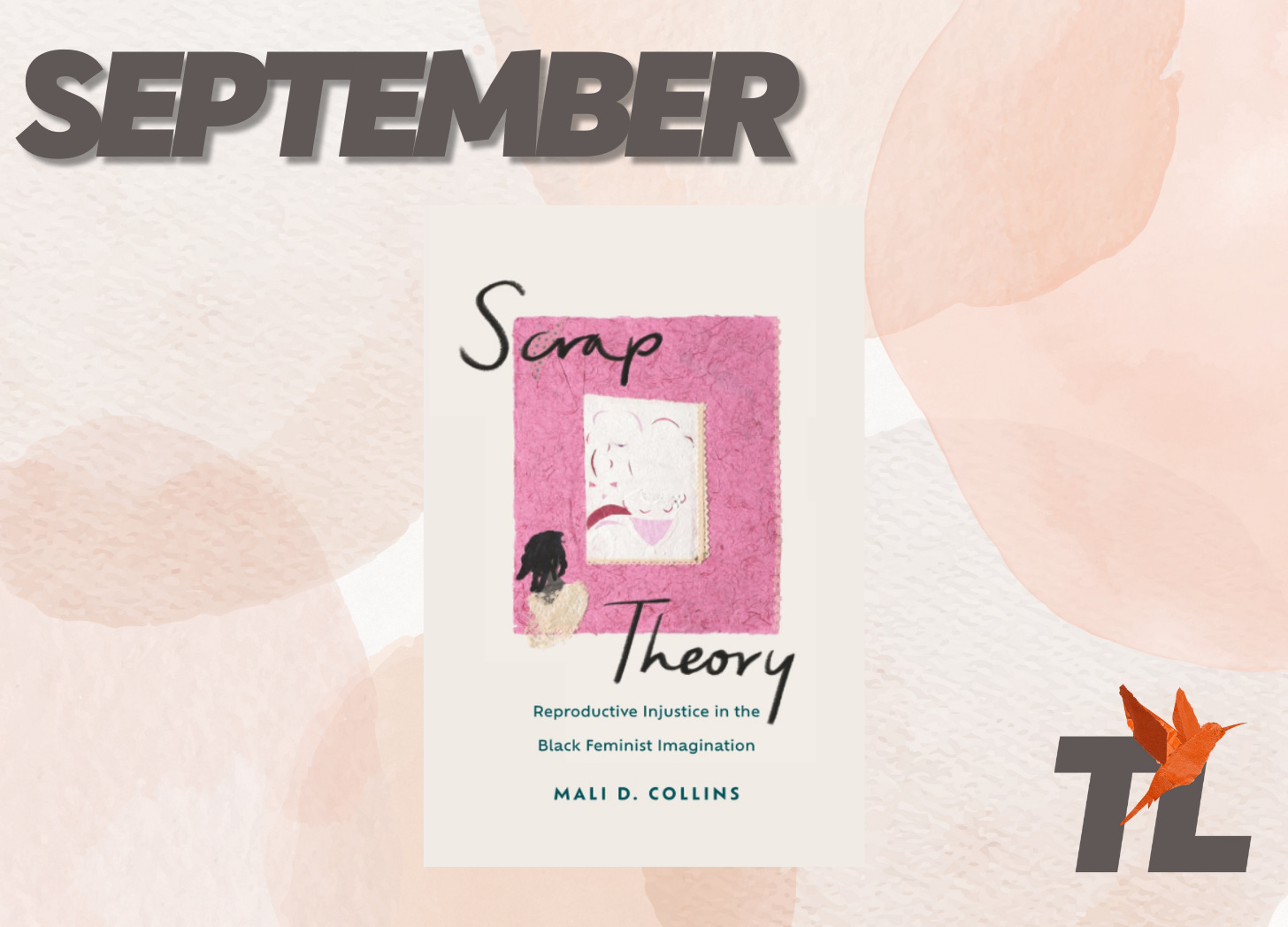What We're Reading | September 2025
Scrap Theory by Mali D. Collins
As it seems the world is being dismantled, this moment calls upon us to think more expansively, to think beyond laws and the justice it claims to administer. We are being called to grow, even in the midst of uncertainty and absurdity.
And while it cannot be argued that the tactics of the current administration are some of the most blatant and unapologetic displays of terror in the name of White Supremacy, patriarchy, settler colonialism, racial capitalism and everything Empire holds true and dear, Black, Brown, and Indigenous people have lived versions of this current reality for centuries. And Black, Brown and Indigenous women and children especially have borne the brunt of Empire’s brutality.
This September, we invite you to read with us a text that uses the expansiveness of archival history to reckon. To reckon with the then so that we might be better equipped to understand and RESIST the now.
About Scrap Theory by Mali D. Collins:
“Reproductive justice debates have often focused on the right to not have children, but rarely do they address the right to remember children lost to violence. Turning her attention to visual and written works by Black women documenting mother–child separation, Mali D. Collins invites us to deploy a theory of “scraps” to understand the ways that the lives of Black mothers and children are documentations of centuries of racialized and gendered torment.
Focusing on creative works from the late twentieth century through the present, including the writings of Toni Cade Bambara, M. NourbeSe Philip, and Edwidge Danticat; the critical activism of Erica Garner; and visual/material art by Samaria Rice and Elizabeth Catlett, Collins argues that Black women’s creative work should be recognized as memory work that plays a crucial role in the cultural processing of racial and maternal trauma. By centering creative scraps—interstitial, fragmentary, or discarded elements—of maternal dispossession, Scrap Theory brings together theories of archival injustice and reproductive injustice to illuminate how the archival erasure of Black motherhood is an urgent concern for the movement for reproductive justice.”
Read with us in September and join us for a special conversation with TL and Dr. Mali D. Collins on Tuesday, September 30th at 6pm ET.
Yours in faith, love, and resistance,
The TL Team



